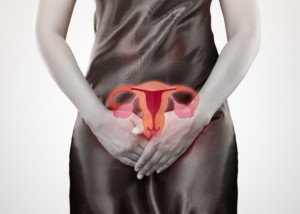
A gynecologist discusses postmenopausal cervical mucus: Is this normal? How much?
“I would venture to guess, the amount of cervical mucus produced after menopause varies amongst individuals,” says Alyssa Dweck, MD, a practicing gynecologist in Westchester County, NY, and co-author of the book, “V is for Vagina.”
There are numerous elements to consider when it comes to cervical mucus production in postmenopause.
This article isn’t about any type of discharge (such as that from an infection), but specifically, cervical mucus.
“Estrogen-like supplements such as soy (non-processed such as miso, tamari or tempeh, rather than soy protein bars and soy powders) or phyto-estrogens as well as aggressive hydration may contribute positively to vaginal health,” says Dr. Dweck.
“A healthy lifestyle with avoidance of smoking and treatment of chronic disease such as diabetes or cardiovascular disease, will enhance blood flow to the genitals to avoid dryness.”
But what if you’re already taking these healthful measures, are in postmenopause, and one day you notice some cervical mucus, when for months following menopause and even during this change, you were bone dry?
“I cannot think of any reason for cervical mucus secretion to increase or suddenly occur after a long period of none after menopause,” says Dr. Dweck.
“During perimenopause, estrogen levels wax and wane, so mucus production intermittently is not unusual.
“Suffice it to say, in the absence of any pathology (infection, Pap abnormality, medication change or items listed above), maybe this is just good fortune to those who have been suffering with dryness.”
If you’ve been having a resurgence of cervical mucus (not necessarily enough to “soak” your panties, but what would be considered a reappearance of the normal production of CM), and you’re concerned because you’re postmenopausal, then see a gynecologist.
At least if a recent Pap smear has come back normal, and the internal pelvic exam and external ultrasound also come back normal, you can be reassured it’s nothing to worry about.
If you recently completed menopause, this resurgence may simply be due to some residual hormonal activity that’s still working its way about.

 practices general gynecology and is proficient in laparoscopic and robotic gynecologic surgery. Her special interests are female sexual health and dysfunction.
practices general gynecology and is proficient in laparoscopic and robotic gynecologic surgery. Her special interests are female sexual health and dysfunction. 







































